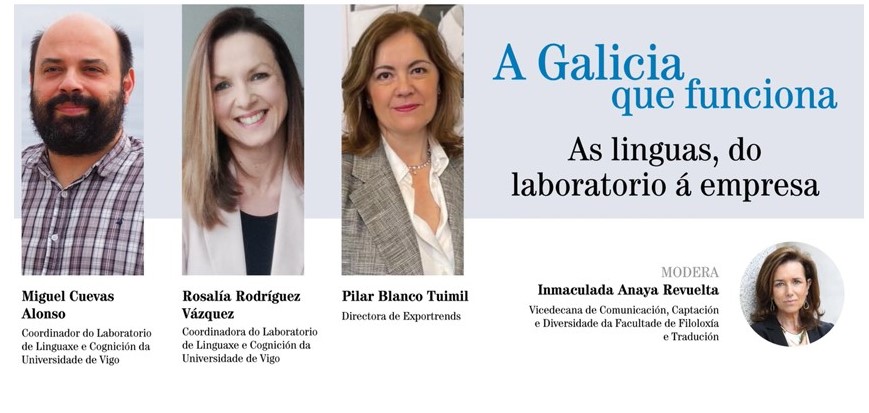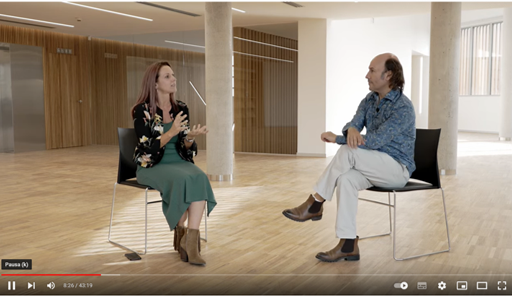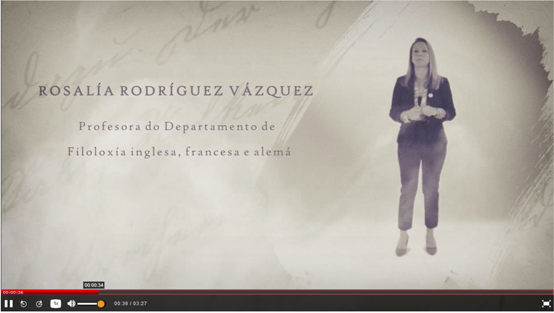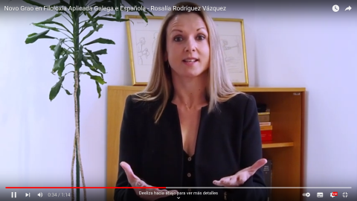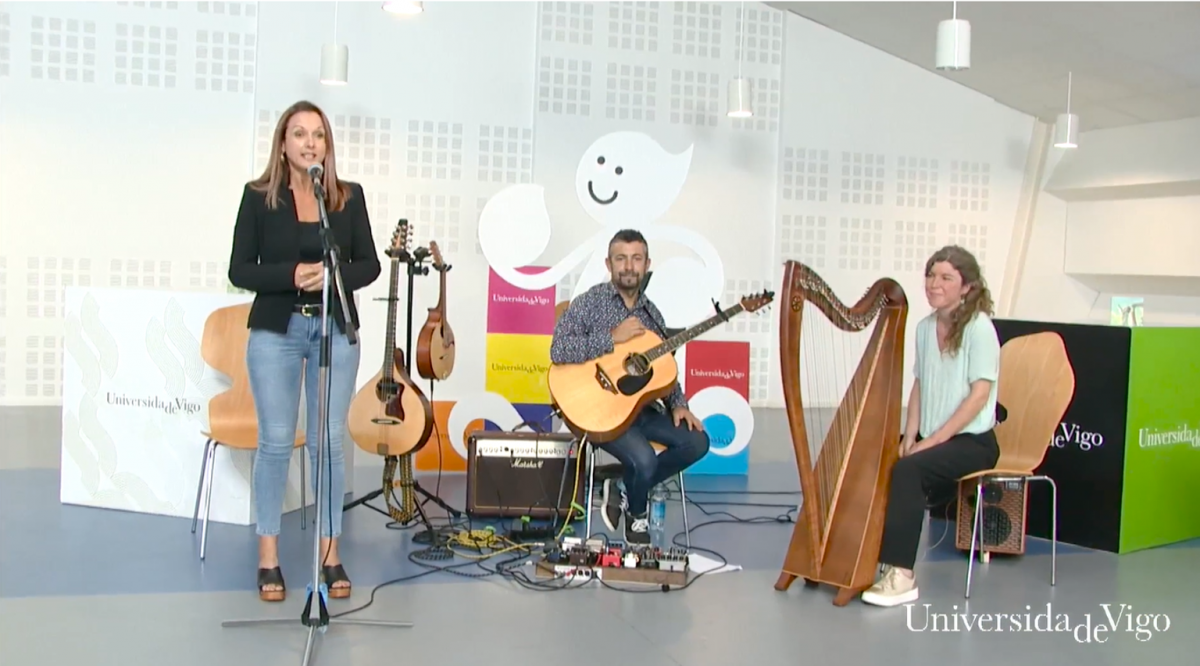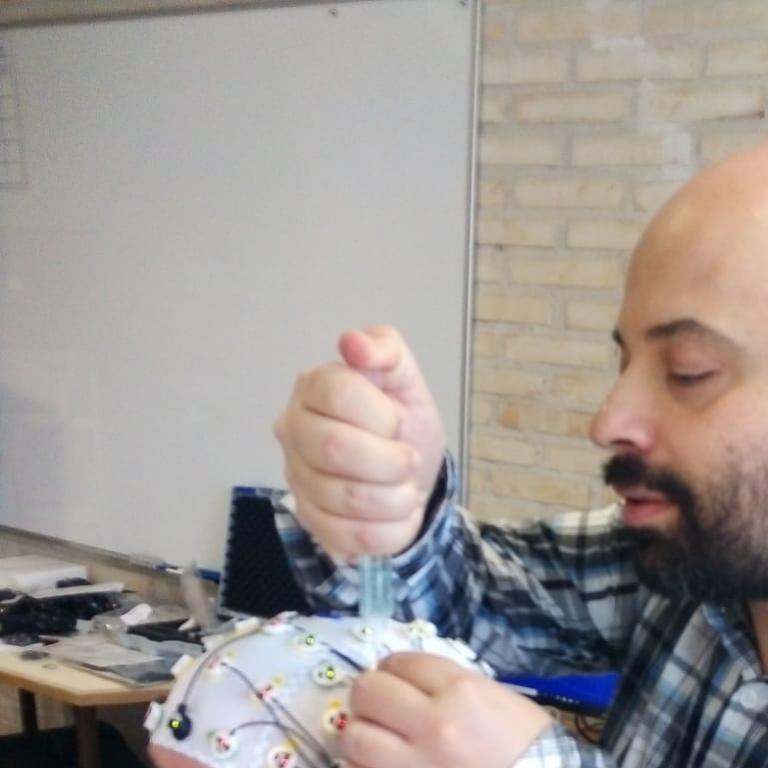
Contact
Facultade de Filoloxía e Tradución (office N 1). Campus Universitario. E-36310 Vigo.
Academic bio, publications and research projects
Rosalía Rodríguez-Vázquez is Senior Lecturer (Profesora Titular de Universidad) at the Department of English, French and German (University of Vigo), where she teaches at both graduate and postgraduate level. She is also a founder member and co-director of the Language and Cognition Lab (Lang&Co. Lab) of the University of Vigo.

Rosalía graduated in English Language and Literature from the University of Vigo. She also completed a degree in Music (Flute Performance Major) at the Conservatoire of Vigo.
She studied for an MSc by Research in Linguistics and Music at the University of Edinburgh. She obtained the Diploma de Estudos Avanzados (DEA) in English Language at the University of Vigo.
After that, she embarked on a PhD at the University of Edinburgh funded by the AHRC and the Xunta de Galicia. During her PhD years, she was a member of the Institute for Music in Social and Human Development (IMHSD).
She obtained a PhD in Phonology and Music with a dissertation supervised by Prof Heinz Giegerich and Prof Raymond Monelle. During her PhD period, Rosalía worked as a teaching assistant in the department of Linguistics and English Language at the University of Edinburgh. She gained her second doctorate in English Language from the University of Vigo, with a dissertation supervised by Prof Javier Pérez Guerra, for which she obtained the Premio Extraordinario de Doutoramento (Doctoral Award).
Soon after completing her PhD, she worked as an invited research fellow at the CNRS / Paris 8.
She has been a member of the LVTC group since 2001.
Rosalía published the monograph The Rhythm of Speech, Verse and Vocal Music: a New Theory (Bern: Peter Lang) in 2010. Besides, she has published book chapters and articles in refereed journals about the interface between suprasegmental phonology, metrics and music from a synchronic and a diachronic perspective; phonology and dubbing; and experimental phonetics, particularly regarding Galician and Galician Spanish intonation, and rhythmic transference in Spanish and Galician learners of English.
At present, Rosalía is involved in two major research projects, namely 1) the intonation contours of fragments in English (2020-2023, PID 2020-117541GB-IOO), and 2) the perception of and physiological response to basic emotions as uttered by native and non-native speakers of American English in subjects with and without musical training. In order to complete the latter, in 2022 she obtained a "Salvador de Madariaga" Senior Research Grant of the Spanish Ministry of Universities to work as Visiting Researcher at the Music and Audio Research Lab and the Max Planck Center for Language, Music and Emotion at New York University.
Research interests
1) The relationship between text, melody and musical rhythm from both a synchronic and a diachronic perspective.
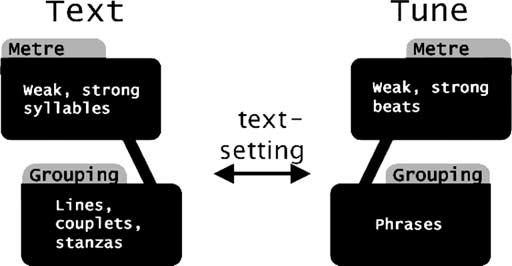
2) Phonetic analysis of the prosodic component of language, with special focus on
a) rhythm and intonation in English L1 and L2,
b) Galician Spanish and Galician rhythm and intonation,
c) acquisition of the suprasegmental component of a second and/or foreign language.

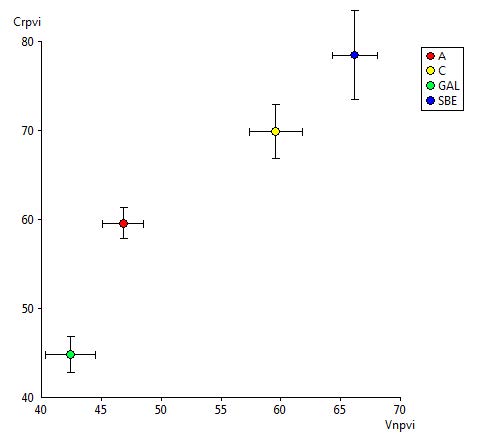
(Rodríguez-Vázquez & Roseano, 2023)
3) Emotional prosody: Behavioural and physiological responses by musically (un)trained subjects.

(Rodríguez-Vázquez et al., forthcoming)
Web presence
If you want to know more about the Language and Cognition Lab, click on the image below:
For a well-rounded view of the connections between language rhythm and music rhythm, click on the image below:
To hear Rosalía's take on poetry, female writing and the 2020 Nobel Laureate, click on the image below:
Thinking about coming to study at the Faculty of Philology and Translation? Here's why you should:
... And, of course, music. Always music:



